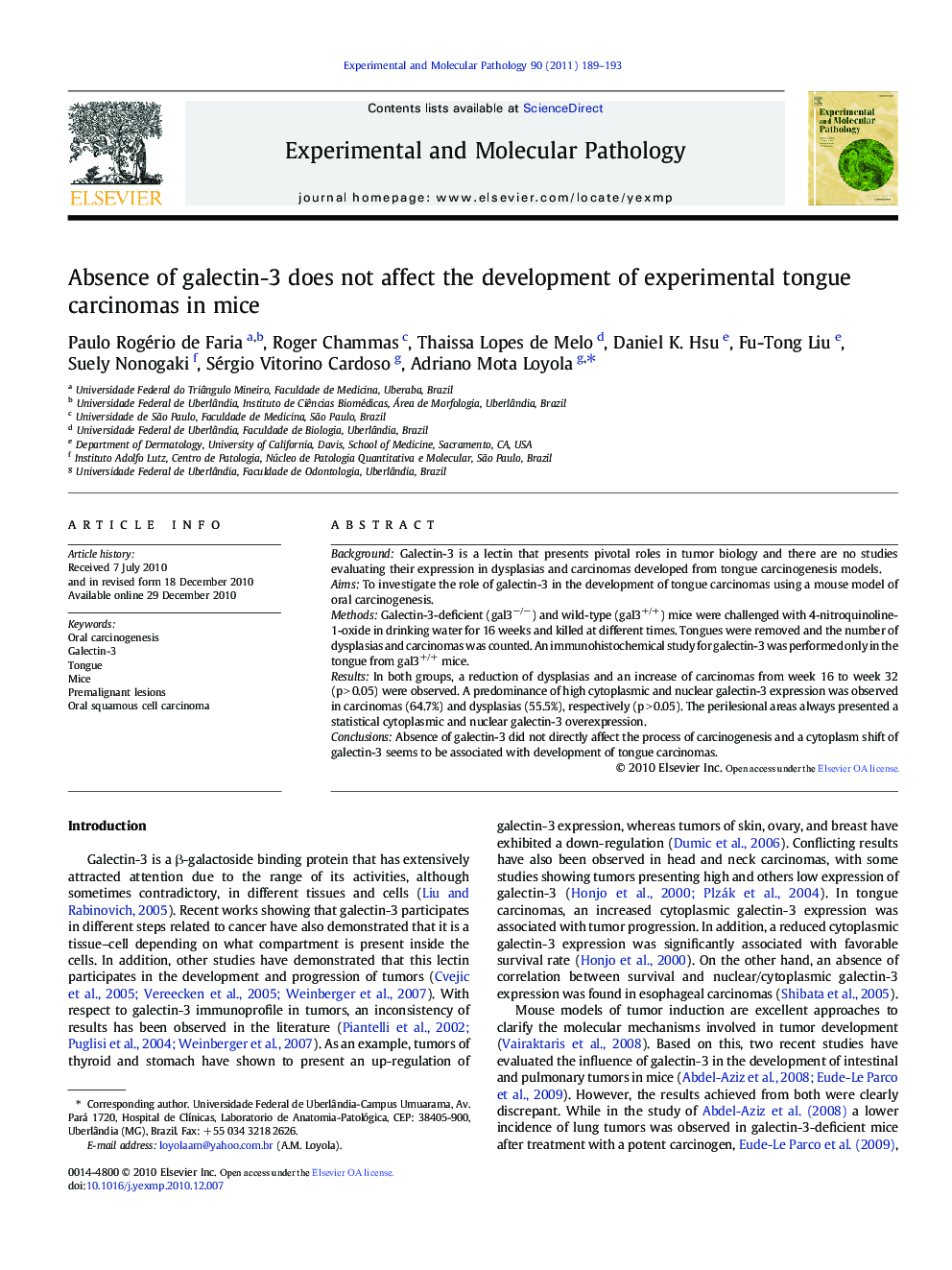| Article ID | Journal | Published Year | Pages | File Type |
|---|---|---|---|---|
| 5888387 | Experimental and Molecular Pathology | 2011 | 5 Pages |
BackgroundGalectin-3 is a lectin that presents pivotal roles in tumor biology and there are no studies evaluating their expression in dysplasias and carcinomas developed from tongue carcinogenesis models.AimsTo investigate the role of galectin-3 in the development of tongue carcinomas using a mouse model of oral carcinogenesis.MethodsGalectin-3-deficient (gal3â/â) and wild-type (gal3+/+) mice were challenged with 4-nitroquinoline-1-oxide in drinking water for 16 weeks and killed at different times. Tongues were removed and the number of dysplasias and carcinomas was counted. An immunohistochemical study for galectin-3 was performed only in the tongue from gal3+/+ mice.ResultsIn both groups, a reduction of dysplasias and an increase of carcinomas from week 16 to week 32 (p > 0.05) were observed. A predominance of high cytoplasmic and nuclear galectin-3 expression was observed in carcinomas (64.7%) and dysplasias (55.5%), respectively (p > 0.05). The perilesional areas always presented a statistical cytoplasmic and nuclear galectin-3 overexpression.ConclusionsAbsence of galectin-3 did not directly affect the process of carcinogenesis and a cytoplasm shift of galectin-3 seems to be associated with development of tongue carcinomas.
